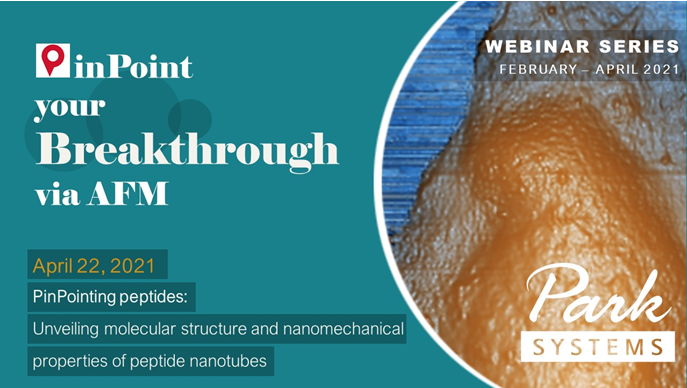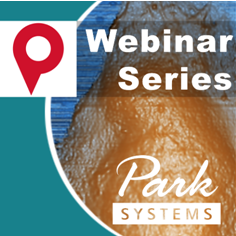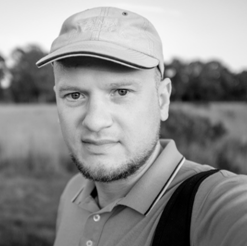
PinPointing peptides: Unveiling molecular structure and nanomechanical properties of peptide nanotubes
Thursday, 22 April, 2021
- 10:00 am – 11:30 am
(GMT)
London, Dublin - 11:00 am – 12:30 pm
(CET)
Berlin, Paris, Rome - 18:00pm – 19:30 pm
[UTC+9]
Seoul, Tokyo

The self-assembly of short peptides has been recently established as a facile route to various macromolecular nanostructures with promising applications in tissue engineering, biomedical devices and drug delivery. Some of these nanostructures may also be used as degradable scaffolds for the fabrication of metal nanowires. Self-assembled peptides can form an array of nanostructures including nanofibrils, nanotubes, nanospheres and vesicles dependent on the constituent peptide or environmental conditions during assembly. They also display a range of nanomechanical and, as has been recently shown [1], strong piezoelectric properties. At the same time, unveiling their molecular structure and mechanism of peptide self-assembly is crucial in understanding the precise molecular routes for medical conditions associated with protein misfolding, e.g. Alzheimer disease.
Therefore, peptide nanotubes and similar structures are ideal objects for correlative AFM imaging – an approach to combine both molecular resolution and nanomechanical/nanoelectrical data within the same experiment. Such approach could lead to the ultimate goal – correlating molecular structure of a peptide nanotube with its functional properties. Something that has not been achieved so far
This webinar will focus on practical aspects of acquiring high resolution and nanomechanical data with both PinPointTM and True Non-ContactTM modes on a range of peptide nanotubes.
[1] A. Kholkin , N. Amdursky , I. Bdikin , E. Gazit , G. Rosenman , Strong piezoelectricity in bioinspired peptide nanotubes, ACS Nano (2010) 610–614

Presented By :
Dr. Vladimir Korolkov, Senior Application Scientist at Park Systems UK
Vladimir received his PhD in Chemistry from Moscow University in 2008. Then, he moved to the University of Heidelberg and specialized in X-ray photoelectron spectroscopy of thin films, following by the position at the University of Nottingham, where he discovered his passion for Scanning Probe Microscopy (SPM), and became a strong advocate of SPM techniques to unlock structure and properties at nanoscale. He pioneered the use of higher eigenmodes of standard cantilevers to routinely achieve resolution that was previously thought to be exclusively limited to STM and UHV-STM. Vladimir published more than 40 scientific papers, including three in Nature family journals. He left academia in 2018 to contribute to the industrial site of SPM technology.




